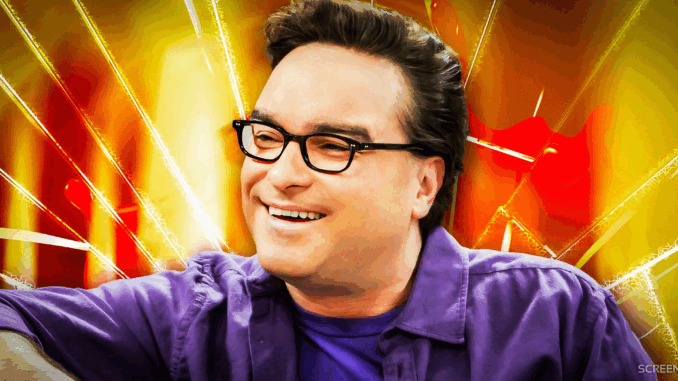
Introduction
Leonard Hofstadter may not have had Sheldon’s eccentricity or Howard’s flashy wardrobe, but as the emotional center of The Big Bang Theory, he played a crucial role in balancing the show’s zany science and heartfelt storytelling. With his dry wit, quiet vulnerability, and enduring patience, Leonard provided the steady ground from which much of the series’ chaos could rise. This article explores Leonard’s journey across the twelve seasons—from insecure physicist to confident husband—and why he remains one of the show’s most underrated characters.
The Straight Man in a World of Chaos
Leonard’s Character Archetype
Leonard often served as the “straight man” in the group—a common sitcom role where one character reacts with sanity to the madness around them. Surrounded by Sheldon’s hyper-logic, Howard’s inappropriate jokes, and Raj’s romantic delusions, Leonard’s grounded nature provided contrast and made the group dynamics work.
Yet, being the straight man never meant Leonard lacked depth. From his dysfunctional childhood to his often-troubled relationship with Penny, Leonard’s character was rich in internal conflict and growth.
A Childhood of Pressure
Leonard was raised by Beverly Hofstadter, a neuroscientist with a cold, clinical approach to parenting. This left him craving affection and constantly second-guessing his worth. His strained relationship with his mother was a recurring theme throughout the show, providing both comedy and insight into his insecurity. Beverly’s approval seemed forever out of reach, which made Leonard’s personal achievements feel bittersweet.
The Romance with Penny
Love Across the Hall

From the very first episode, Leonard is smitten with Penny, the aspiring actress who moves in across the hall. Their relationship becomes the show’s emotional through-line. While they face numerous breakups and reconciliations, their journey reflects genuine romantic development. Leonard admires Penny’s beauty and social confidence, while Penny gradually learns to appreciate Leonard’s intelligence and stability.
The contrast between their worlds—science versus performance, academia versus experience—fuels both comedy and conflict. But ultimately, their marriage becomes a symbol of personal growth on both sides.
An Unlikely But Earnest Love Story
One of the criticisms the show occasionally received was whether Penny and Leonard’s relationship was realistic. But the writers subtly built their bond on more than attraction. Leonard supported Penny through failed auditions, self-doubt, and career shifts. Penny, in turn, encouraged Leonard to be more assertive and to value himself.
Their wedding in Season 9, followed by a second celebration with friends and family, was a culmination of years of growth and compromise. It wasn’t a fairy tale—it was real.
Scientific Success and Self-Doubt
Leonard the Experimental Physicist
Professionally, Leonard works in experimental physics, specializing in lasers. While he often felt overshadowed by Sheldon’s theoretical work, Leonard was a competent, respected scientist in his own right. Episodes such as “The Classified Materials Turbulence” and “The Large Hadron Collision” highlight his contributions and frustrations in the lab.
Despite his achievements, Leonard frequently dealt with imposter syndrome—never feeling quite smart enough compared to Sheldon, or successful enough for his mother. These internal conflicts made him more relatable to viewers who have faced similar feelings in their careers.
H3: Growth in Confidence
By the series’ later seasons, Leonard grows more assertive. He challenges Sheldon more often, stands up to his mother, and finds confidence in his relationship. His promotion to co-lead a laser project and his leadership role in Season 12 show how far he’s come professionally.
The Dynamic with Sheldon Cooper
Roommate, Friend, and Caretaker
Perhaps Leonard’s most defining relationship is with Sheldon. Their dynamic is equal parts hilarious and heartbreaking. Leonard tolerates Sheldon’s strict schedules, peculiarities, and overbearing behavior with saint-like patience. At times, it feels more like a caretaker role than a friendship.
But as the show progresses, their bond deepens. Leonard learns to assert himself, while Sheldon gradually acknowledges Leonard’s importance in his life. When Sheldon finally thanks Leonard in his Nobel Prize acceptance speech in the finale, it’s a payoff twelve years in the making.
Roommate Agreement and Beyond
The infamous Roommate Agreement serves as a symbol of their often ridiculous cohabitation, full of rules about bathroom usage and emergency evacuation drills. But it also underlines Leonard’s willingness to accommodate Sheldon—until he finally learns to set boundaries.
Leonard’s Legacy
A Quietly Powerful Presence
Leonard may not have the flashiest moments in the series, but he’s often the one holding the group together. His apartment is the central meeting point. His relationships, especially with Penny and Sheldon, drive the emotional core of the show. He represents the “everyman” in a world of geniuses and oddballs.
Johnny Galecki’s Contribution
Johnny Galecki brought warmth and nuance to Leonard. Known for his roles in Roseanne and other sitcoms, Galecki infused Leonard with vulnerability, comic timing, and subtle charm. His performance helped make Leonard a believable blend of intellect, insecurity, and kindness.
Conclusion
Leonard Hofstadter is proof that a character doesn’t need to be outrageous to be compelling. His journey from a socially awkward physicist with abandonment issues to a confident husband and respected scientist is one of the most understated triumphs in The Big Bang Theory. In a series full of big personalities, Leonard’s quiet strength and emotional honesty make him the true heart of the show.